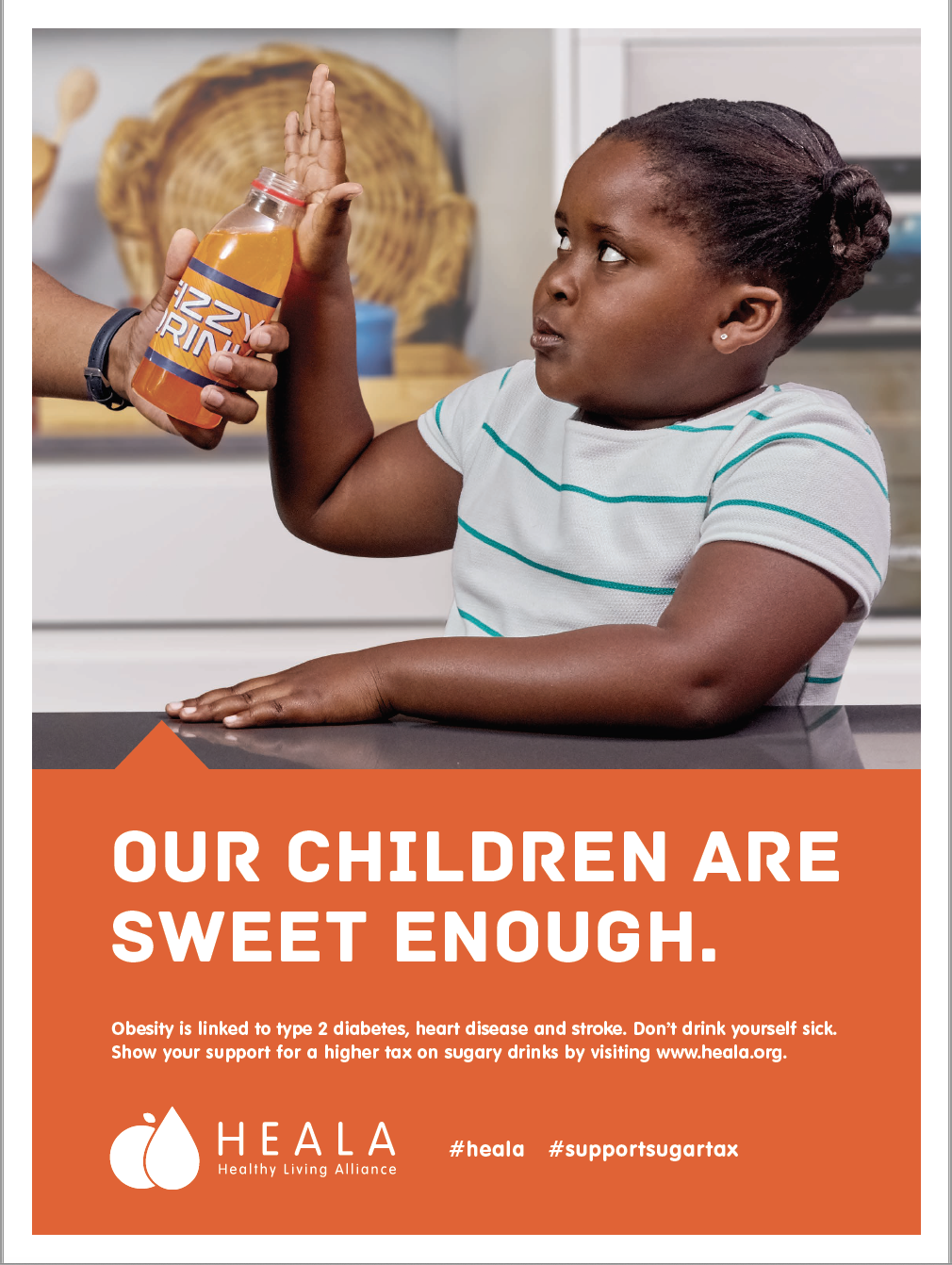Obesity is a major and growing public health challenge in South Africa. On April 1, 2018, South Africa became the first African country to introduce a tax on sugary beverages. The 11% tax was intended to reduce consumption of sugary drinks, which contribute to the country’s rising rates of obesity and related noncommunicable diseases (NCDs). Before the tax was passed, Vital Strategies and a coalition of local civil society groups launched an extensive public communication and advocacy campaign, based on evidence that such campaigns can help to build widespread political and public support for a proposed policy.
This case study describes how a variety of factors led to introduction of the tax, described in legislation as the Health Promotion Levy. In particular, how strategic advocacy and communication, informed by local context and local and international evidence and experience, helped to secure political and public support for the tax. Lessons learned from this campaign can inform other countries’ communication and advocacy efforts aimed at policies to address the global obesity epidemic.
Recent Abstracts
Information About New Federal Regulations for Opioid Treatment Programs (OTPs)
Centering Country Ownership and Leadership: The Data for Health Initiative’s Approach
Mass Media Campaigns
Data for Health: Advancing Gender Equity
The Index of Tobacco Control Sustainability
Index of Tobacco Control Sustainability (ITCS): India Subnational Tobacco Control
Index of Tobacco Control Sustainability (ITCS): Indonesia Subnational Tobacco Control
Considerations for Planning Childhood Blood Lead Surveillance
Air Quality Monitoring Toolkit: Assessing Second-Hand Smoke in Hospitality Venues
Association between high-threshold practices and buprenorphine treatment termination
